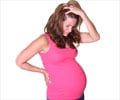High-risk women for breast cancer, who are subject to periodical mammograms, have increased chances of developing the disease, according to a research report released on Monday.
The them to breast cancer.research was carried out on 1,600 European women who carried genetic mutations that predisposed Women who had a minimum of one chest X-ray taken were 54 percent more likely to develop breast cancer in comparison to those who were not subjected to it.
This observation, reported in the July issue of the Journal of Clinical Oncology, means that it would be better for women who harbor mutations in BRCA1 or BRCA2 genes, to consider being screened with magnetic resonance imaging (MRI), in the place of X-rays, doctors suggested.
Genetic testing to detect a mutation in men and women with a family history of breast or ovarian cancer can also be carried out.
Exposure to high doses of ionizing radiation is a known cause of breast cancer. But the risk involved is not considered significant in a mammogram, hence, experts still recommend it .
In women below the age of 40, mammograms are considered less accurate and the radiation could be more potent. Hereditary breast cancers, however, often strikes women below the age of 40 years.
Advertisement
"This [study] calls into question, is it possible by starting so young when it might increase their risk?"
Advertisement
Dr. Virginia Kaklamani, an expert in breast cancer and cancer genetics at Northwestern University remarked, “MRI alone can be hard to read and have a high rate of false-positive results, which leads to unnecessary biopsies.
“So, if a radiologist found something suspicious on an MRI, I'd probably recommend a mammogram despite the radiation exposure”, she said.
A genetic epidemiologist at the University of Utah and lead author of the study, David Goldgar said that it was too early to come to conclusions about who required mammograms. He said further research was necessary to confirm the results.
The chances of having one of the known breast cancer genes are about 1 in 800 in the general population. But the number can be much higher in certain ethnic groups such as t 1 in 40 for Ashkenazi Jews, of Eastern European origin.








